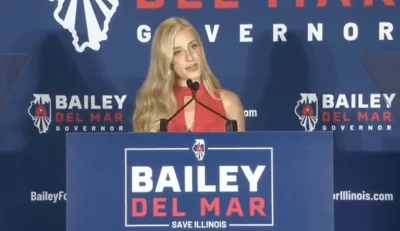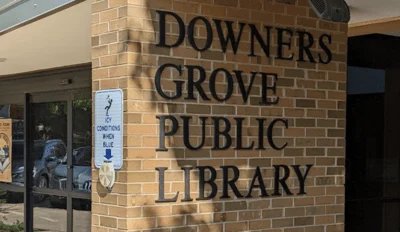State Sen. Seth Lewis (R-Bartlett) said he was a “no” vote on the state’s 2024 budget.
"We live in a wonderful state with great potential, and we had an opportunity this year to collaborate on a Fiscal Year 2024 budget that reflects the priorities of the people and families that call Illinois home,” Lewis said on Facebook following the budget’s passage.
“Unfortunately, I could not support the budget because I felt it came up short in addressing issues my constituents have said are important to them. They just want safe streets, good schools, opportunities to be successful, and to know that our state's most vulnerable citizens have the services they need.”
Illinois state lawmakers approved the $50.6 billion spending plan for fiscal year 2024, despite lacking Republican support and with some Senate Democratic caucus members voting against it.
The budget has faced criticism for various reasons, including what Republican lawmakers say is its failure to adequately address the state's pension debt. Appropriations to the pension funds fall $4.1 billion below the recommended amount, exacerbating Illinois' growing pension debt, which now stands at $140 billion or potentially higher.
Lawmakers also declined to extend the Invest in Kids tax credit scholarship program for low-income students but approved pay raises for themselves and allocated $50 million for a new legislative building.
The budget is seen as leaving little room for error as revenue projections have dropped, and there are concerns about its sustainability and balance.
Republican lawmakers have also claimed a lack of transparency and rushed process in developing the budget. Lawmakers say they had limited time to review the 3,000-plus page document.
The budget also faces potential challenges due to uncertain revenue projections and the unaccounted costs of future obligations, such as a new American Federation of State, County and Municipal Employees (AFSCME) contract and increased Medicaid provider reimbursement rates.
Republican lawmakers have said the overall budgeting process in Illinois is broken, and they have made calls for reforms to create a more sustainable financial position for the state, including addressing pension debt and improving transparency.
The state currently has a contract with the American Federation of State, County and Municipal Employees (AFSCME), which represents many Illinois state employees, and this contract is set to expire at the end of June. Lawmakers estimate that the new contract with AFSCME could cost an additional $200 to $300 million, but these expenses were not included in the state's budget. While Gov. J.B. Pritzker stated that funding has been allocated for the AFSCME negotiation, the final cost remains unknown.
State Rep. Charlie Meier (R-Okawville) expressed concerns that if the AFSCME contract is not fully funded in the 2024 budget, Democrats might propose new taxes on residents.
"I'm still afraid this budget will have holes when it gets later into the year, and then you will hear the talk right after the first of the year that we are going to have to put the progressive income tax back on the ballot," Meier said.
Meier said the money will have to come from somewhere.
"We will see on a bill promoting the progressive income tax again in the future," Meier said. "It will be because they have reasons because they need the extra funds, whether that's from the AFSCME contract or more money for the illegal immigrants' Medicaid.”
In Crains, House GOP Leader Tony McCombie (R-Savanna) criticized Speaker Emanuel "Chris" Welch (D-Westchester) for his handling of the budget.
McCombie described the budget as unbalanced and suggested that it sets the stage for future tax increases. In an interview, she said that former Speaker Mike Madigan was more transparent in his interactions with the minority party than Welch has been.






 Alerts Sign-up
Alerts Sign-up